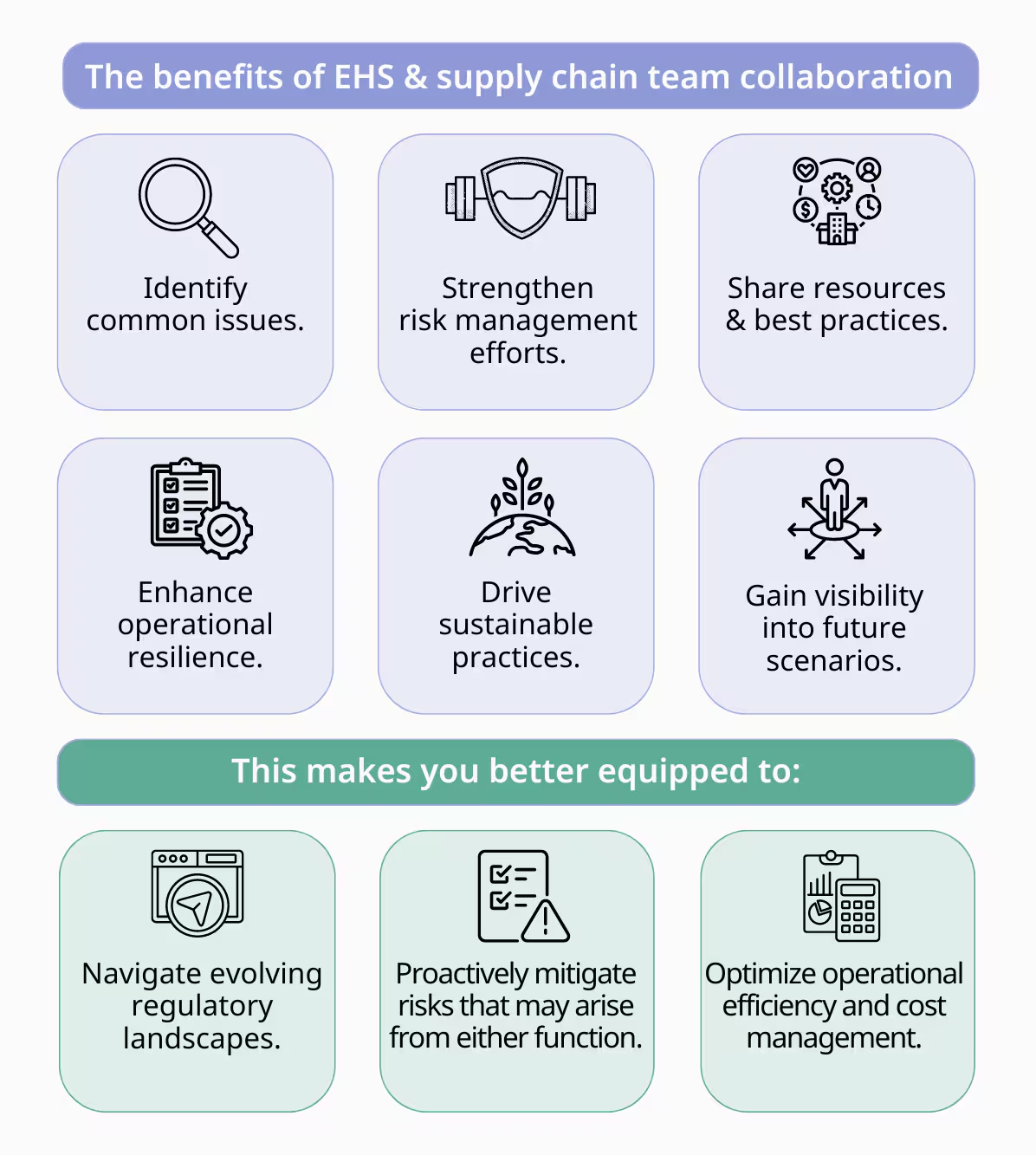
Contributor: Kimberly Rodriguez, BSI Consulting
This article was originally published on bsigroup.com on May 1, 2024.
May 1, 2024 — Organizations are facing supply chain challenges that demand innovative, multi-functional, and collaborative solutions.
One often-overlooked approach to addressing these unexpected hurdles is the intentional partnership between environment, health, and safety (EHS) management and supply chain teams. These teams often navigate similar issues, such as mitigating operational risks and complying with regulatory requirements. A partnership holds huge potential for enhancing efficiency, mitigating risk, and driving sustainable growth across all industries.
Synergy between EHS and procurement
EHS management stands as a cornerstone of organizational well-being, tasked with steering complex environmental and worker health and safety regulations. EHS professionals play a pivotal role in developing and implementing comprehensive programs that ensure employee safety, regulatory compliance, and environmental stewardship. However, the significance of their role is frequently marginalized, relegated to a mere expense rather than being integrated into broader business strategies. This oversight can lead to unnecessary costs and reactive crises, underscoring the need for holistic integration within companies.
Similarly, procurement teams wield substantial influence over organizational success, being responsible for sourcing materials, goods, and services while optimizing costs and ensuring regulatory compliance. Yet like their EHS counterparts, procurement teams often operate in isolation, disconnected from other business units and unable to recognize the opportunities for working together with other functions. As we have witnessed in the last few years, problems arising in supply chains have a ripple effect across all business functionalities and cannot be addressed in isolation.
This siloed approach not only hampers operational efficiency but exposes companies to risks stemming from supply chain disruptions and compliance lapses (read more in the 2024 Supply chain risks and opportunities report).

Advancing sustainability initiatives
EHS and supply chain teams play integral roles in advancing an organization’s sustainability initiatives as these functions directly involve workers and the impacts of business operations on local communities. By integrating EHS compliance and ethical procurement practices into sustainability frameworks, companies can demonstrate a commitment to environmental sustainability, social responsibility, and ethical business practices.
This alignment not only reinforces organizational values but also resonates with today’s increasingly strict regulatory reporting environment and with socially conscious consumers and investors, fostering trust and goodwill.
Realizing the full potential of EHS-supply chain partnerships requires a concerted effort to bridge existing informational gaps and foster cross-functional collaboration. Prioritizing knowledge-sharing between these functions helps businesses streamline operations and drive sustainable growth.
Visit BSI’s Experts Corner for more insights from industry experts. Subscribe to our Experts Corner-2-Go LinkedIn newsletters for a roundup of the latest thought leadership content: Digital trust, EHS, supply chain.

Kimberly Rodriguez
Kimberly Rodriguez, BSI Consulting, Consultant specializing in sustainability focuses on corporate social responsibility (CSR) risks. She supports the development of CSR/responsible sourcing programs across industries.
